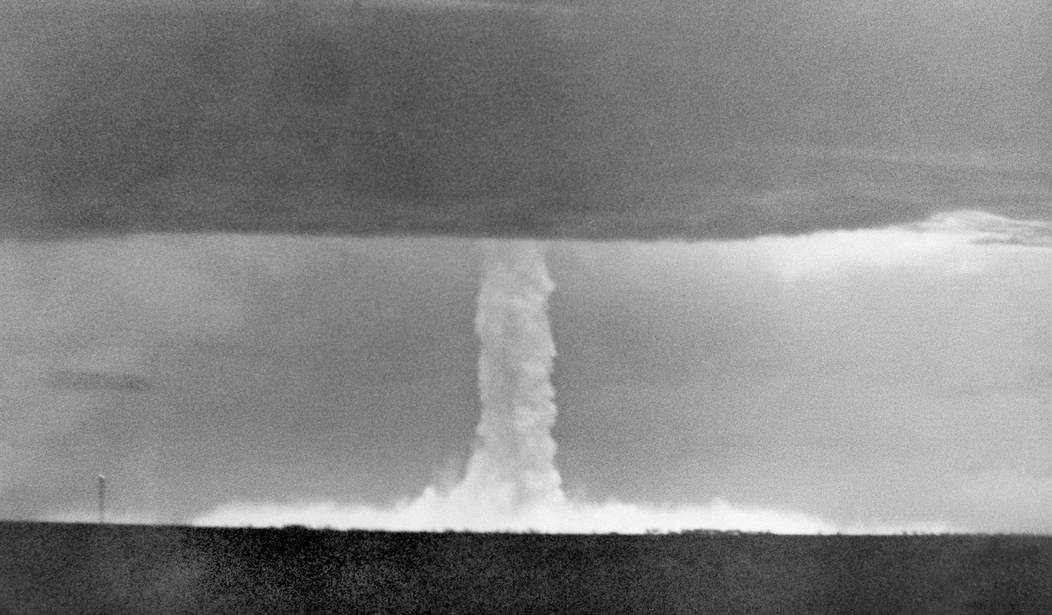I couldn’t resist writing about this, as it reminded me of the idiocy from the 80s of “nuclear-free” cities.
During the Reagan era cities across America declared themselves “nuclear-free,” signaling to the world that not all Americans wanted to blow up the world. It was inspiring, and I am pretty sure that in the event of a nuclear war, the Soviet Union would have carefully avoided killing anyone in my then-hometown Amherst, MA, due to its peacenik policies.
I see a lot of jeering in comments here. Folks, back in the 1980’s nearly every city in the country had a discussion about nuclear weapons on their council agendas, because nuclear war was a real, world-ending possibility. Guess what? It is today again and perhaps more than ever.
— James Kielkopf (@KielkopfJames) March 14, 2023
The spirit of peace is still alive and well in my now-home state of Minnesota, and I suppose in municipalities across America. Once again cities are taking a bold stand against nuclear war, reassuring me that our elected officials remain complete and total idiots.
We keep on arguing about what, exactly, the government should do to make the world a better place. The obvious answer is: as little as possible, because the people who run the government are for the most part clowns, and not very good ones.
Funny, to be sure, but only in the way that a 5-year-old singing off-key while dancing is funny.
DULUTH — Members of the City Council were divided Monday night over a resolution meant to send a message to national leaders calling for nuclear disarmament.
With councilors locked in a 4-4 tie vote despite extensive public testimony in support of the resolution, the measure failed for lack of a majority.
The disagreement stemmed largely from debate whether the City Council would be overstepping its purview to register its support for the proposed international Treaty on the Prohibition of Nuclear Weapons.
Tom Morgan, a Lakeside neighborhood resident and Vietnam combat veteran, urged Duluth to join in its support of the treaty, alongside city councils that have already done so in Minneapolis, St. Paul, Chicago, Milwaukee, Des Moines and Evanston, Illinois, as well as many other communities.
I suppose it is comforting to know that half the city council voted against this resolution, and I applaud them for their lack of idiocy.
Yet in what sane world does a city council decide to hold a vote on whether a treaty to ban nuclear weapons should be signed?
Outlawing nuclear weapons has a surface appeal, at least for people who are utterly historically illiterate. Back in 1928, a treaty was signed that outlawed war, called the Kellogg-Briand Pact. The State Department’s historian has a rather droll historical short on the Pact, and it summarizes it in the opening paragraph:
The Kellogg-Briand Pact was an agreement to outlaw war signed on August 27, 1928. Sometimes called the Pact of Paris for the city in which it was signed, the pact was one of many international efforts to prevent another World War, but it had little effect in stopping the rising militarism of the 1930s or preventing World War II.
There’s more to the history, and you can read about it at the link. But this bit of history on the support for the Pact in the U.S. reminds me precisely of today:
In the wake of World War I, U.S. officials and private citizens made significant efforts to guarantee that the nation would not be drawn into another war. Some focused on disarmament, such as the series of naval conferences that began in Washington in 1921, and some focused on cooperation with the League of Nations and the newly formed World Court. Others initiated a movement to try to outlaw war outright. Peace advocates Nicholas Murray Butler and James T. Shotwell were part of this movement. Both men were affiliated with the Carnegie Endowment for International Peace, an organization dedicated to promoting internationalism that was established in 1910 by leading American industrialist Andrew Carnegie.
How did that work out? Hmm. As I recall, the allies mostly disarmed, while the Axis powers built up their militaries.
I have no problem with peace movements per se, but I have a big problem with historically illiterate movements of any kind. Unfortunately, the historically illiterate tend to run the world these days, and perhaps that is true most of the time. It’s not like Otto von Bismarcks are plentiful.
Still, it is good to be reminded that the kind of people who seek and attain power are often dunces, not masterminds. The city councils of “Minneapolis, St. Paul, Chicago, Milwaukee, Des Moines and Evanston, Illinois, as well as many other communities” have signed up for this idiocy, and I wish I could say I was surprised.








Join the conversation as a VIP Member